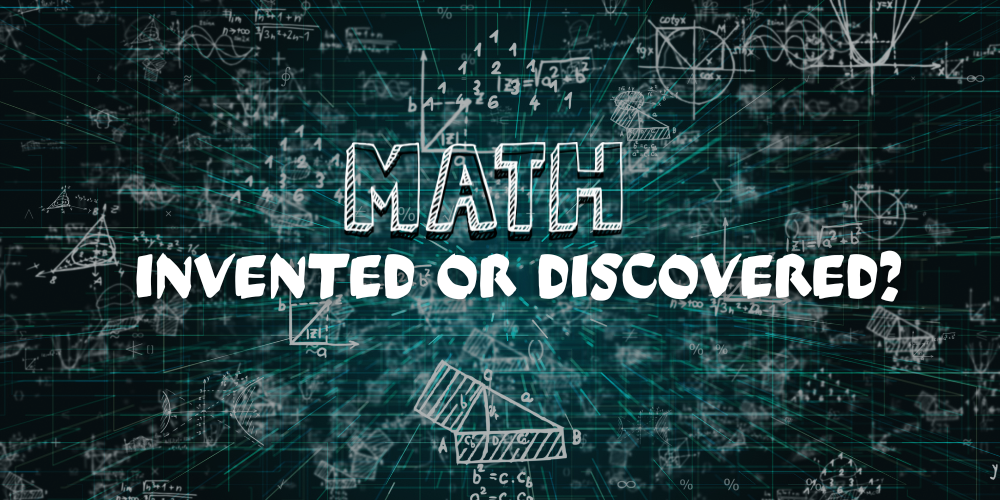
Mathematics, a subject often perceived as a human invention, is more accurately described as a discovery of universal truths. This perspective posits that mathematical principles exist independently of human thought, waiting to be uncovered. Let’s explore this intriguing notion and its implications.
The Nature of Mathematical Discovery
Mathematics is not a creation of human minds but a discovery of pre-existing truths that govern the universe. The ancient Greeks, particularly the Pythagoreans, viewed mathematics as a fundamental part of reality itself. They believed that the universe operates according to mathematical principles, and through mathematics, we can gain a deeper understanding of the cosmos.
The Argument for Discovery
One compelling argument for the discovery nature of mathematics is its applicability across different fields and phenomena. Mathematical principles like the Fibonacci sequence, the golden ratio, and prime numbers appear in nature, art, and even human biology. These patterns exist independently of human intervention, suggesting that mathematics is an intrinsic part of the natural world.
.thumbnailWrapper{
width:6.62rem !important;
}
.alsoReadTitleImage{
min-width: 81px !important;
min-height: 81px !important;
}
.alsoReadMainTitleText{
font-size: 14px !important;
line-height: 20px !important;
}
.alsoReadHeadText{
font-size: 24px !important;
line-height: 20px !important;
}
}

Mathematics as a Universal Language
Mathematics is often referred to as the universal language. This universality supports the idea that mathematical truths exist beyond human invention. For example, the principles of geometry discovered by Euclid over two millennia ago are still valid and used today, regardless of cultural or temporal context. This universality implies that mathematical truths are discovered, not created.
Axioms and Theorems: Human Constructs or Universal Truths?
While humans have formulated various axioms and theorems, these are attempts to describe the underlying truths of mathematics. The fact that different cultures and civilizations, often isolated from each other, have developed similar mathematical concepts independently further supports the discovery argument. These parallel developments indicate that humans are uncovering the same universal principles rather than inventing new ones.
The Role of Mathematics in Science
The use of mathematics in scientific discovery is another testament to its inherent nature. Mathematics allows scientists to describe physical laws and predict natural phenomena accurately. For instance, Isaac Newton’s laws of motion and Albert Einstein’s theory of relativity are based on mathematical frameworks that describe how the universe operates. These frameworks were not invented but discovered through observation and logical deduction.
Criticisms and Counterarguments
Despite strong arguments for the discovery of mathematics, some scholars argue that mathematics is a human construct. They contend that while the phenomena described by mathematics exist in nature, the symbols, notations, and formal structures we use are human inventions. This viewpoint suggests that mathematics is a language we developed to make sense of the world, much like any other language.
Bridging the Divide: A Synthesis
A more nuanced perspective blends both viewpoints, suggesting that while mathematical structures are discovered, the language and methods we use to describe these structures are human inventions. This synthesis recognises that humans play a crucial role in uncovering and formalising mathematical truths, even if those truths exist independently of our awareness.
In summary, the debate over whether mathematics is invented or discovered is ongoing. However, the evidence leans toward the notion that mathematical principles are inherent to the universe, and humans have merely uncovered these principles through exploration and study. Mathematics, therefore, is a discovery that continues to reveal the profound and intricate order of the cosmos.
By recognising mathematics as a discovery, we can appreciate its role in our understanding of the universe and its potential to unlock even more mysteries in the future. Whether through the elegant simplicity of Euclidean geometry or the mind-bending complexities of quantum mechanics, mathematics remains a testament to the inherent order and beauty of the natural world.








![Read more about the article [App Friday] From Japan’s Manga to Rothkos and Rodins of the world, Google Arts & Culture lets you get up, close, and personal with art](https://blog.digitalsevaa.com/wp-content/uploads/2022/06/Googleartsandculture-16-1654179131115-300x150.png)

